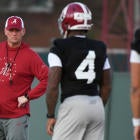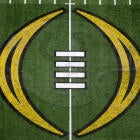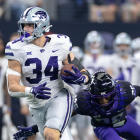
The regulation -- or lack therof -- of name, image and likeness (NIL) compensation has been a hot topic across college football this offseason. Practically everyone has an opinion on it, including former Florida and Ohio State coach Urban Meyer, who recently joined the growing list of prominent names across the sport to set his sights on NIL collectives.
"I'm not saying it's all that way, but from my understanding, it's a fancy word for cheating," Meyer told Dan Dakich. "When I hear that word I kind of cringe right now and I hear the stories behind it that they're going to go to donors and boosters and ask for a lot of money, put it in a big pot, and then decide who gets that money based on ability level. Which, I think is 1A of the rule of NIL. You can't do that."
Collectives operate outside of a university's purview, though some states allow university officials -- such as coaches and those in the athletic department -- to endorse collectives. However, anyone currently employed by the university cannot financially contribute to a collective.
Meyer himself sits on the board for "THE Foundation," an NIL collective "founded to pay Ohio State Football and Basketball student-athletes as they use their name, image and likeness to help promote worthy charitable causes and make positive contributions to our community," according to organization's website.
Several prominent figures in college football, including Penn State coach James Franklin, have equated the current NIL landscape to the Wild West. There is a push among college football's elite, spearheaded by Alabama coach Nick Saban, to develop some sort of federal regulation for NIL. Saban and SEC commissioner Greg Sankey are part of a convoy of university presidents and conference commissioners expected to head to Washington, D.C. next week to lobby for a more unified code on a national scale.
Speaking at the 2023 SEC Spring Meetings, Saban railed against the current patchwork of state-by-state laws governing NIL.
"If it's going to be the same for everyone, I think that's better than what we have now," he said. "Because what we have now is we have some states and some schools in some states that are investing a lot more money in terms of managing their roster than others."
For Meyer's part, his time as a college coach ended well before the NCAA allowed athletes to profit off their NIL. The 58-year old coached at Utah, Florida and Ohio State from 2003-18, winning three national championships in the process before a brief and disastrous stint with the Jacksonville Jaguars in the NFL.





















